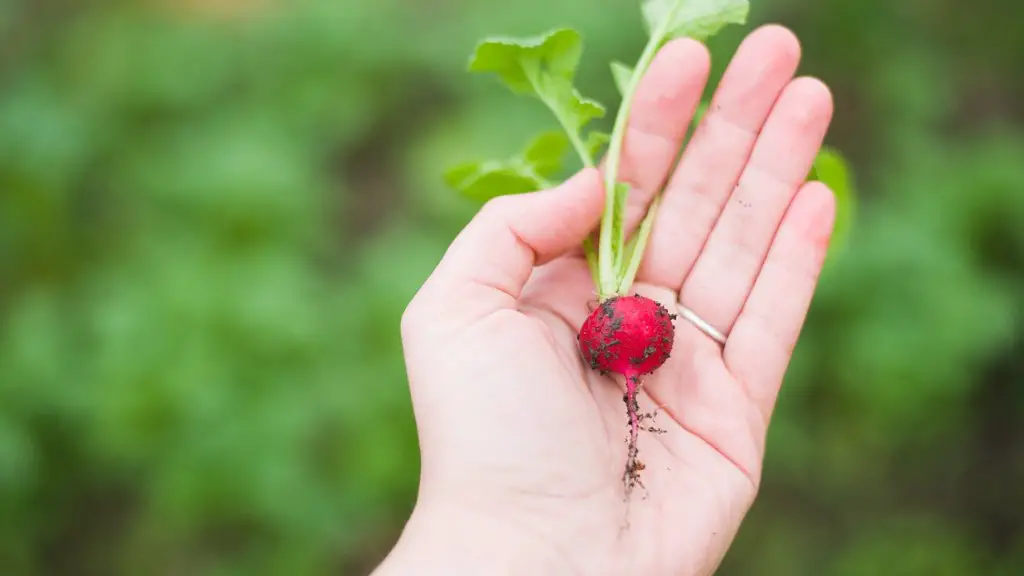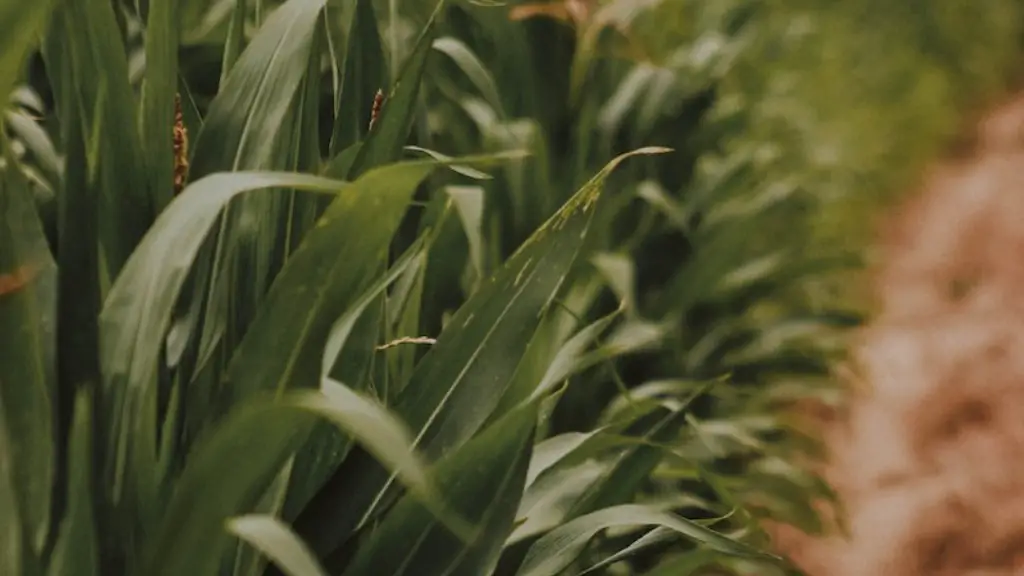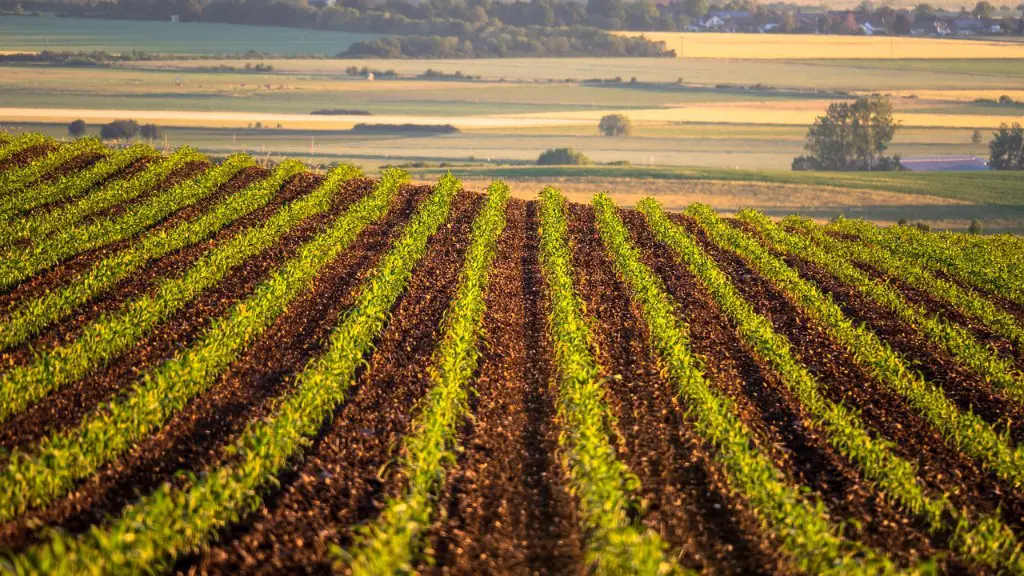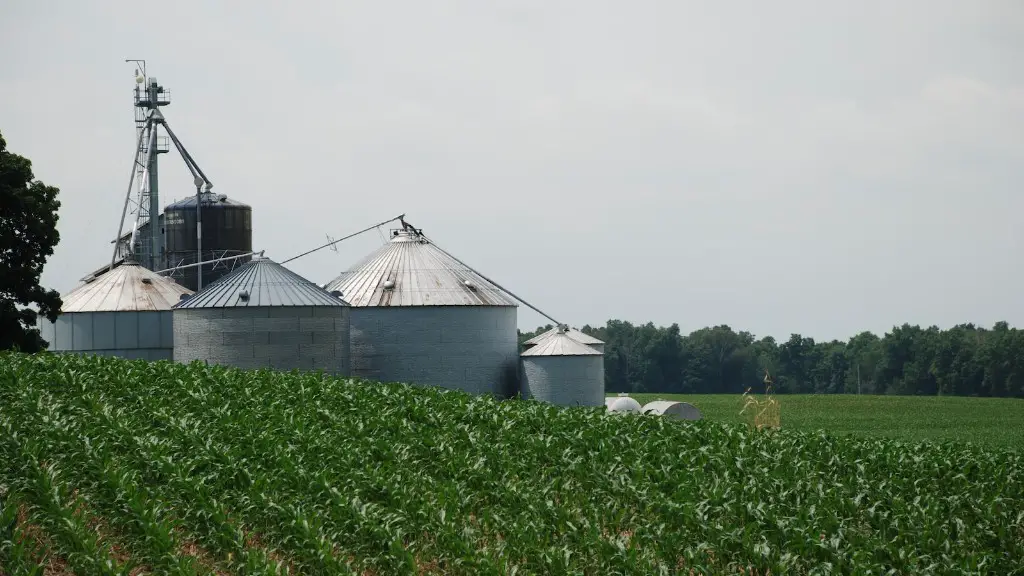The field of biotechnology is important to the agricultural industry because it offers new ways to produce food and improve crop yields. Additionally, biotechnology can be used to develop new plant varieties that are resistant to pests and diseases. This helps farmers to produce food more efficiently and with less impact on the environment.
Biotechnology is important to agriculture as it can help to improve crop yields and quality, and to develop new crops and varieties that are more resistant to pests and diseases. It can also help to reduce the need for chemical inputs such as fertilizers and pesticides.
What is the importance of biotechnology in agriculture?
Biotechnology can help farmers in a number of ways. For example, by engineering crops to be tolerant to specific herbicides, farmers can more easily and effectively control weeds. This can save time and money, making production more efficient and manageable. Additionally, biotechnology can be used to develop new and improved crop varieties, which can help farmers to increase yields and improve their overall operations.
Products developed with agricultural biotechnology may contribute to the reduction of greenhouse gas emissions in a number of ways. For example, cover crops can be used to provide sustainable biofuels, while fruits and vegetables that stay fresh longer can reduce food waste. In addition, agricultural biotechnology can be used to develop more efficient and environmentally friendly production methods, which can further reduce greenhouse gas emissions.
What are three examples of how biotechnology might be used in agriculture
Biotechnology has revolutionized agriculture, with farmers now able to grow crops that are resistant to pests and disease, and that can be harvested more quickly. Here are five examples of how biotechnology is being used in agriculture:
1. Genetically Modified Crops: One of the most common applications of biotechnology in agriculture is the development of genetically modified (GM) crops. These crops have been modified to resist herbicides and pests, and to produce higher yields.
2. Developing of Biofuels: Another application of biotechnology in agriculture is the development of biofuels. Biofuels are made from plant materials, and can be used to power vehicles and machinery.
3. Improving Plant Growth: Biotechnology can also be used to improve plant growth. For example, farmers can use biotechnology to increase the amount of nitrogen in the soil, which can improve crop yields.
4. Improving Plant Seed Quality: Biotechnology can also be used to improve the quality of plant seeds. For example, farmers can use biotechnology to develop seeds that are resistant to drought or that can grow in poor soils.
5. Improve Animal Health and Breeding: Biotechnology can also be used to improve animal health and breeding
Biotechnology has revolutionized agriculture and has helped in increasing agricultural productivity. Application of biotechnology in agriculture involves scientific techniques such as Genetically Modified Organisms, Bt Cotton, Pest Resistant Plants. These techniques help in modifying plants, animals, and microorganisms and improve their agricultural productivity.
What are the five advantages of using biotechnology for agriculture development?
Biotech plants can help to reduce the amount of food that is lost to disease and pests, as well as reducing the amount of CO2 emissions from the farming process. In the future, they may also help to reduce the amount of water needed to grow crops. This could have a significant impact on the amount of food that is available to people, particularly in areas where land is limited.
Biotechnology can be used to create genetically modified (GM) crops. These crops have beneficial genes inserted into their DNA, which makes them more resistant to pests and diseases. This helps to improve agriculture and increase crop yields. GM crops can also be modified to have higher nutritional value, which is beneficial for human health.
What are 5 benefits of biotechnology?
Biotechnology can be used to create more sustainable versions of vital chemicals, energy sources, and other materials. Additionally, genetically modified crops can be used to increase food production in a sustainable way. Additionally, bioprocesses can be used to turn seawater into fuel and other useful chemicals. Finally, bio-processing can be used to createzero-waste products. Carbon dioxide can also be used as a raw material in biotechnology processes. Finally, regenerative medicine can be used to create new organs for transplants.
Biotechnology has a wide range of applications that have helped improve food quality, quantity and processing. In manufacturing, for example, simple cells and proteins can be manipulated to produce chemicals. This technology also has applications in agriculture, where crops can be engineered to be more resistant to pests and diseases.
What are 3 pros advantages about biotechnology
Biotechnology is a rapidly growing field with great promise in many areas. In environmental protection, for example, biotechnology can be used to clean up contaminated sites, develop new recycling methods, and create more efficient and environmentally friendly manufacturing processes. In agriculture, biotechnology can help farmers increase yields while using fewer resources, such as water and pesticides. And in human health, biotechnology holds the potential to develop new and better treatments for conditions like cancer, heart disease, and HIV/AIDS.
Biotechnology is a term that refers to the use of living cells and cellular materials to create products that benefit society. This can be done through the production of pharmaceuticals, diagnostic tools, agricultural products, and environmental products. Additionally, biotechnology can be used to study and alter genetic information in animals so that human diseases can be modeled and studied.
What are 10 benefits of biotechnology?
Biotechnology is a field of science that involves the study and manipulation of living organisms to produce useful products. Biotechnology has a wide range of applications, including the improvement of crop yield and quality, the reduction of pesticide use, and the preservation of resources.
Crop growth is improved through the use of biotechnology. The application of biotechnology can result in the development of more nutritious crops, as well as the increased production of food. This can help to reduce hunger and improve food security worldwide.
Pesticide use is minimized when biotechnology is used to improve crop yield and quality. The use of biotechnology can help to reduce the amount of pesticides that are needed to be applied to crops. This can help to protect the environment and reduce the health risks associated with pesticide exposure.
Farmers have more power when biotechnology is used to improve crop yield and quality. The use of biotechnology can help farmers to produce more food with less inputs. This can lead to increased profitability and economic growth.
Resources are preserved when biotechnology is used to improve crop yield and quality. The use of biotechnology can help to reduce the amount of water, land, and other resources that are needed to produce food. This can help to conserve these
The most prominent area of biotechnology is the production of therapeutic proteins and other drugs through genetic engineering. By manipulating the genes of living organisms, biotechnologists can create proteins and other molecules that have specific therapeutic applications. For example, they can create vaccines against diseases such as AIDS and cancer, and create antibiotics and other drugs to treat a wide variety of diseases.
What is biotechnology and its importance with examples
Biotechnology is the use of living systems and organisms to develop or make useful products, or “any technological application that uses biological systems, living organisms or derivatives thereof, to make or modify products or processes for specific use” (UN Convention on Biological Diversity, Art. 2).
Pest-resistant crops are those that have been genetically modified to be toxic to insect attacks. These crops have been modified through biotechnology to make them more disease-resistant and to enhance their nutritional value. This results in increased crop yields.
How does biotechnology impact society?
Biotechnology aims to benefit society by providing better methods of food production, improving medical procedures and developing new industrial processes. Biotechnology has already led to the development of new crops and livestock breeds, as well as new drugs and vaccines. In the future, biotechnology is likely to play an even greater role in improving the quality of life for people around the world.
The bioscience industry is a vital part of the US economy, increasing employment by 11% while the overall economy shed 15% of its job base. The industry’s economic impact on the US economy amounted to $29 trillion dollars in 2021, as measured by overall output. The bioscience industry is a critical part of our economy, and its continued growth is vital to our nation’s future.
Warp Up
Biotechnology is important to agriculture for many reasons. One reason is that it can help to improve crop yields by making plants more resistant to pests and disease. Additionally, biotechnology can help to improve the nutrition of crops, making them more nutritious for both people and animals. Furthermore, biotechnology can be used to create new and improved varieties of crops, which can be more resistant to pests and disease, and more nutritious.
Biotechnology is important to agriculture because it can help to improve crop yields, produce new and improved varieties of crops, and develop pest-resistant crops. It can also help to improve soil health and water conservation.





